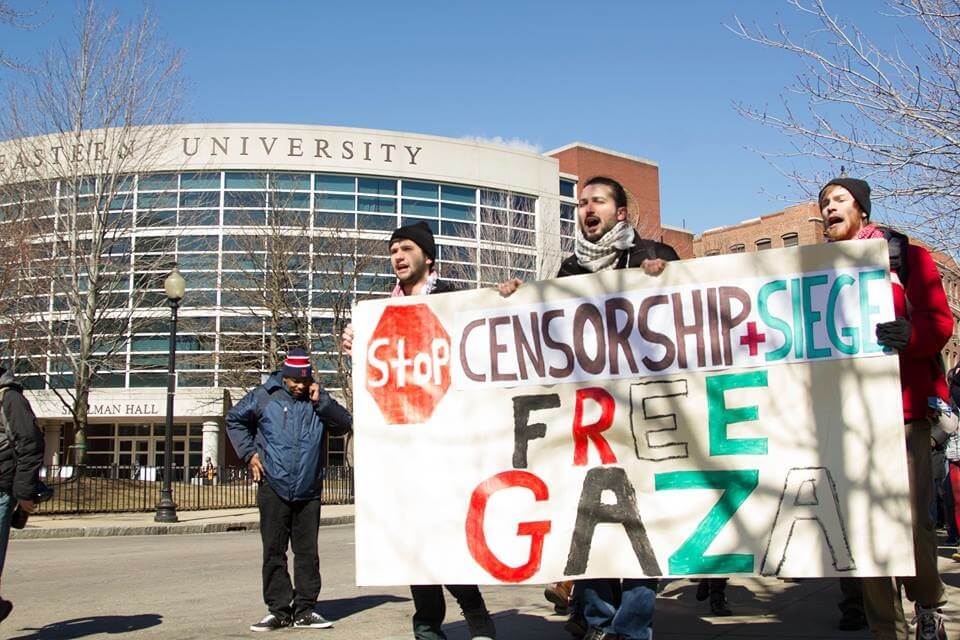In this moment of nuclear proliferation, police brutality, resurgent Nazism, and stunning inequality, Zionists have managed to find the real enemy: a children’s book. The offending title is ‘P is for Palestine’, and Zionists have reacted as if it’s the Hamas charter. Why? Simply put, nothing threatens Israel more than the survival of Palestinian identity through successive generations, which is exactly what ‘P is for Palestine’ tries to accomplish.
Steven Salaita visits Hawaii to learn more about Kanaka Maoli resistance and to converse with local activists and intellectuals about Palestine. He writes, “Enough commonalities exist among the two nations for a shared political project: both suffer military occupation, land theft, foreign settlement, and structural racism. In fact, they contest the same colonial apparatus. This point may seem counterintuitive, but these days the United States and Israel differ only according to technicalities of nomenclature and color scheme. Collusion between the US and Israel is by now axiomatic. People needn’t be identical to know that it is foolish to oppose one of those powers while ignoring the other.”
Steven Salaita travels to Ireland and has an unexpected encounter with a border agent who shows support for Palestine: “By the time I was shivering in Dublin’s oceanic air, it occurred to me that the customs agent hadn’t provided special treatment; he was merely treating me with the sort of dignity proffered to anybody seen as human. I am unaccustomed to that kind of normalcy. In the anti-Zionist’s world, venality is routine.”
Steven Salaita says one way pro-Palestinian faculty can resist administration efforts to curtail activism is to disaffiliate themselves from the institution: “Failing to name an academic employer in a publication might best be described as dis-identification, but the gesture does deeper work when it informs a broader effort at detaching from the employer’s corporate sensibilities. Where pro-Israel fanatics never stop devising ways of punishing anti-Zionists, and have no trouble finding pliant administrators to intimidate, we can seek ways to transcend and possibly subvert the spaces they control.”
Steven Salaita writes about his experience of being forced out the American University of Beirut, “I didn’t leave AUB; I was ousted, deprived by management of a permanent job for which I had been selected. For a long time after it happened, I was shocked that Zionist pressure could succeed in the Arab World. Having suffered that pressure in the United States, I knew the danger of aggravating pro-Israel groups, many of which make a living denying the same right to others. The affair made me rethink some of my assumptions about Zionism as a settler-colonial project. I realized that Zionism informs class loyalty as strongly as it does ideological devotion.”
Steven Salaita writes: “Palestine isn’t the totality, or the crux, of today’s debates about speech and resistance on campus. There’s too much repression preceding Palestine, and now in existence alongside it, for that to be true. But Palestine deeply informs the substance of those debates, and by recovering this sunken reality we can better understand the disputes around free speech and academic freedom that generate so much attention.”
Read a thought-provoking essay by Steven Salaita that looks at the question: how do we communicate with people who have deeply emotional attachment to the idea of Israel? He answers in part, “There is no universal response, but we can deploy a basic strategy: allow the Zionist’s internal conflict to exist. In fact, exacerbate it. That internal conflict isn’t an imperfection to be ameliorated, but a failure of imagination to be overcome.”
Steven Salaita says we can understand the entirety of the Israel-Palestine conflict by examining its physical effect on the land.
Steven Salaita writes the latest message in the series “What Mondoweiss Means To Me,” where leaders in the movement for justice in Israel/Palestine share why they value the work of Mondoweiss. Salaita writes, “Please join me in supporting Mondoweiss, a vital institution that amplifies voices for justice. As advocates of Palestinian human rights, we need Mondoweiss for arguments, facts and insights, and to make the world see, listen and understand.” We are asking Mondoweiss readers to help to raise $60,000 by December 31. Please donate, and tell us what Mondoweiss means to you.
Today Steven Salatia spoke publicly for the first time since he was fired from the University of Illinois. Below is the prepared statement he read to a packed audience at a press conference on the University of Illinois at Urbana–Champaign campus along with some some tweets and photos from the day’s events.









